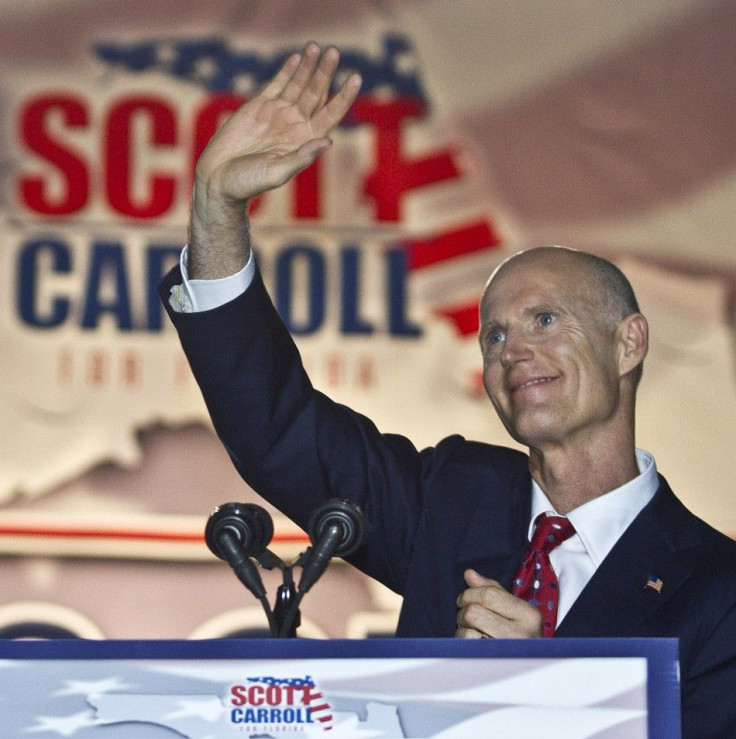Former Florida Republican Leaders Say Voter Laws Were Intended To Keep Democrats Away

At this point, it's common knowledge that Election Day in Florida was chaotic.
As a result of reduced early-voting hours, registration restrictions and voter purges, Floridians were forced to wait in marathon lines to cast their ballots – even after polls had officially closed. That wasn’t an accident, according to an exclusive report by The Palm Beach Post, where several prominent former GOP leaders told the newspaper the election law changes were intended to suppress Democratic and minority voters.
Former Florida Gov. Charlie Crist and former Republican Party Florida Chairman Jim Greer told the newspaper that concerns over in-person voter fraud – widely credited by current Gov. Rick Scott, a Republican, as the reason the state needed more stringent voting restrictions – were “advanced only as subterfuge for the law’s main purpose: GOP victory.”
Greer said he attended a series of meetings beginning in 2009 where GOP staffers and consultants pushed for early-voting-hour restrictions, which typically benefit Democratic candidates.
“It’s done for one reason and one reason only. … ‘We’ve got to cut down on early voting because early voting is not good for us,’ ” Greer said he was told by those staffers and consultants.
Greer is currently under indictment for allegedly stealing $200,000 from the Republican Party through a faulty campaign-fundraising operation. However, in a countersuit he has alleged GOP leaders knew he was siphoning that money and did not object to it.
Meanwhile, Crist – who is now at odds with Republicans after defecting from the party to run as an independent for the U.S. Senate in 2010 – said party leaders approached him during his 2007-to-2011 gubernatorial term about reducing early-voting hours.
While Crist said he did not remember if those GOP leaders wanted to specifically target black voters, he added that “it looked to me like that was what was being suggested. And I didn’t want them to go there at all.”
After signing an executive order to extend early-voting hours in 2008, Crist said Republicans across the state accused him of “giving” that year’s presidential election to Barack Obama.
After Scott took office in early 2011, the Republican-controlled state legislature passed a law to reduce early-voting days from 14 to eight. It also made it more difficult for voters who had changed counties since the last election to cast ballots, a move that also reportedly affected minorities more than whites.
Although the state ultimately went to Obama – again – in 2012, some of Florida’s voter suppression efforts were successful. According to a postelection report from the Florida Times-Union, the new restrictions led to a huge increase of provisional ballots in the state, which are cast when there is some question of the voter’s eligibility.
By law, provisional ballots must be counted if officials later determine the voter is actually legitimate. However, those ballots often remain uncounted.
© Copyright IBTimes 2024. All rights reserved.











